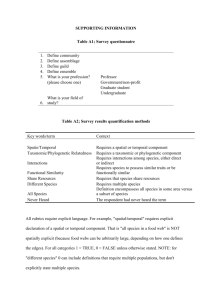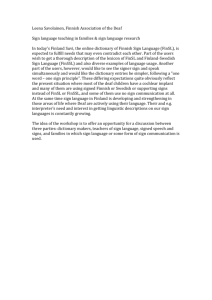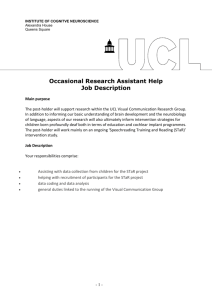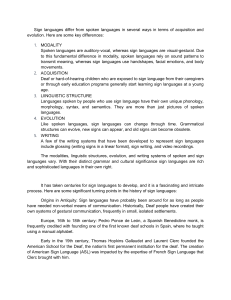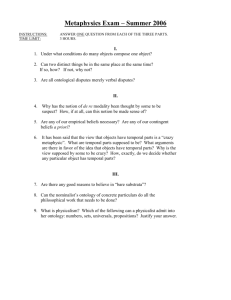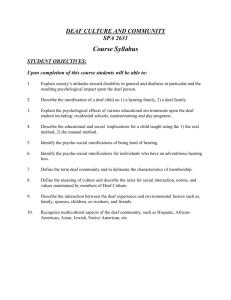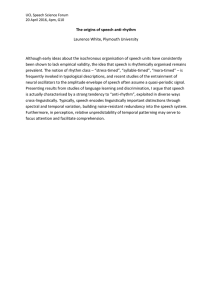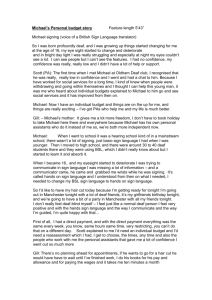Investigating British sign language skills in a deaf signer with
advertisement
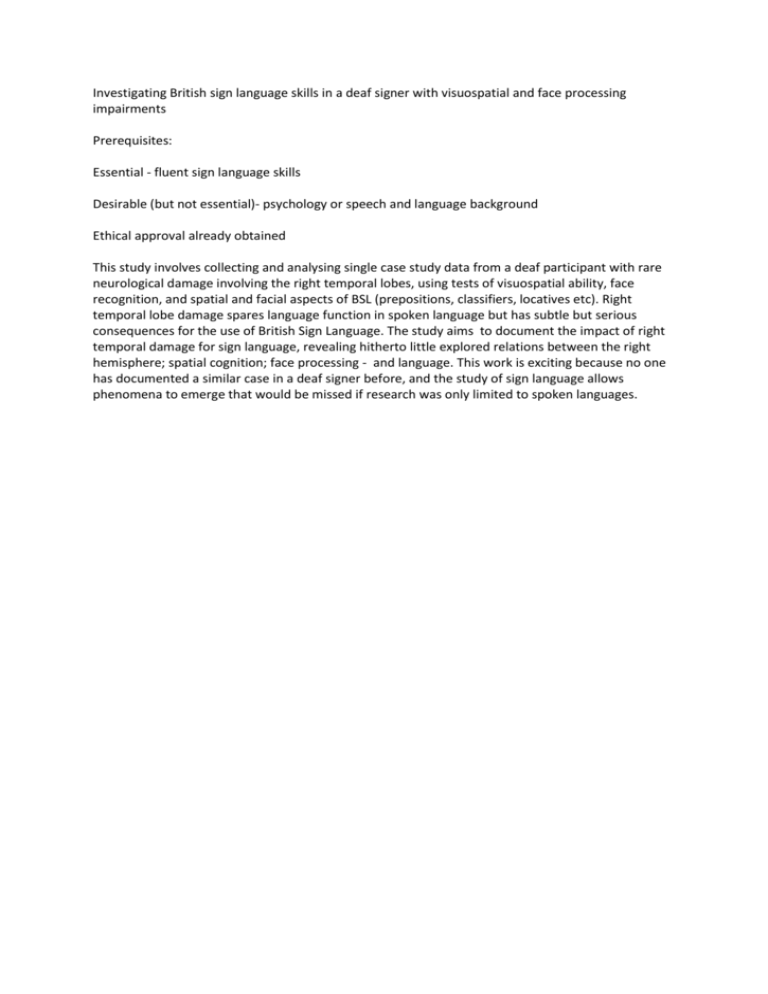
Investigating British sign language skills in a deaf signer with visuospatial and face processing impairments Prerequisites: Essential - fluent sign language skills Desirable (but not essential)- psychology or speech and language background Ethical approval already obtained This study involves collecting and analysing single case study data from a deaf participant with rare neurological damage involving the right temporal lobes, using tests of visuospatial ability, face recognition, and spatial and facial aspects of BSL (prepositions, classifiers, locatives etc). Right temporal lobe damage spares language function in spoken language but has subtle but serious consequences for the use of British Sign Language. The study aims to document the impact of right temporal damage for sign language, revealing hitherto little explored relations between the right hemisphere; spatial cognition; face processing - and language. This work is exciting because no one has documented a similar case in a deaf signer before, and the study of sign language allows phenomena to emerge that would be missed if research was only limited to spoken languages.
